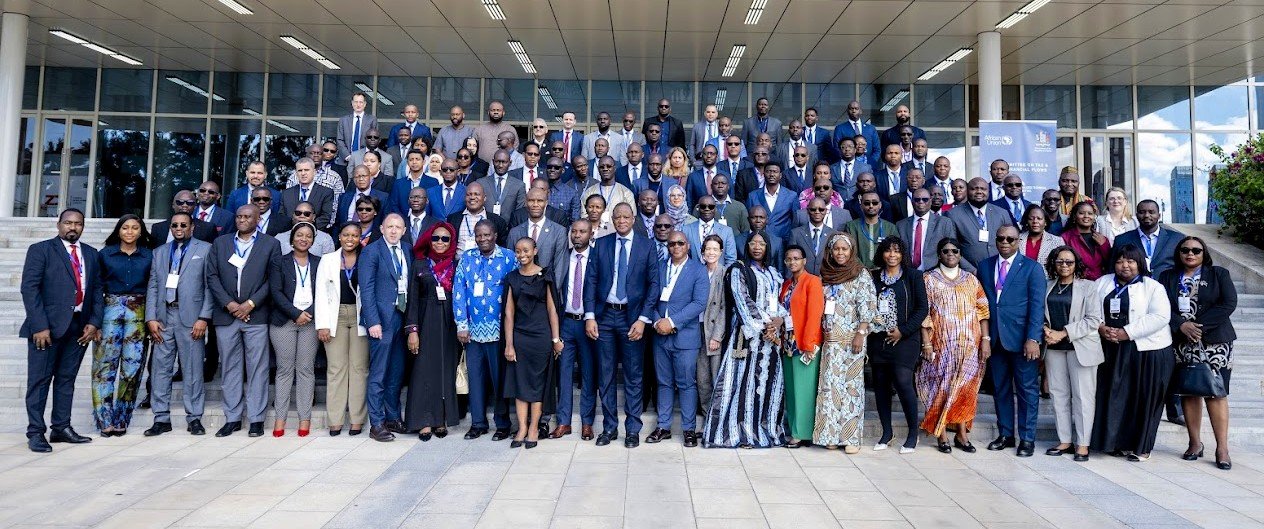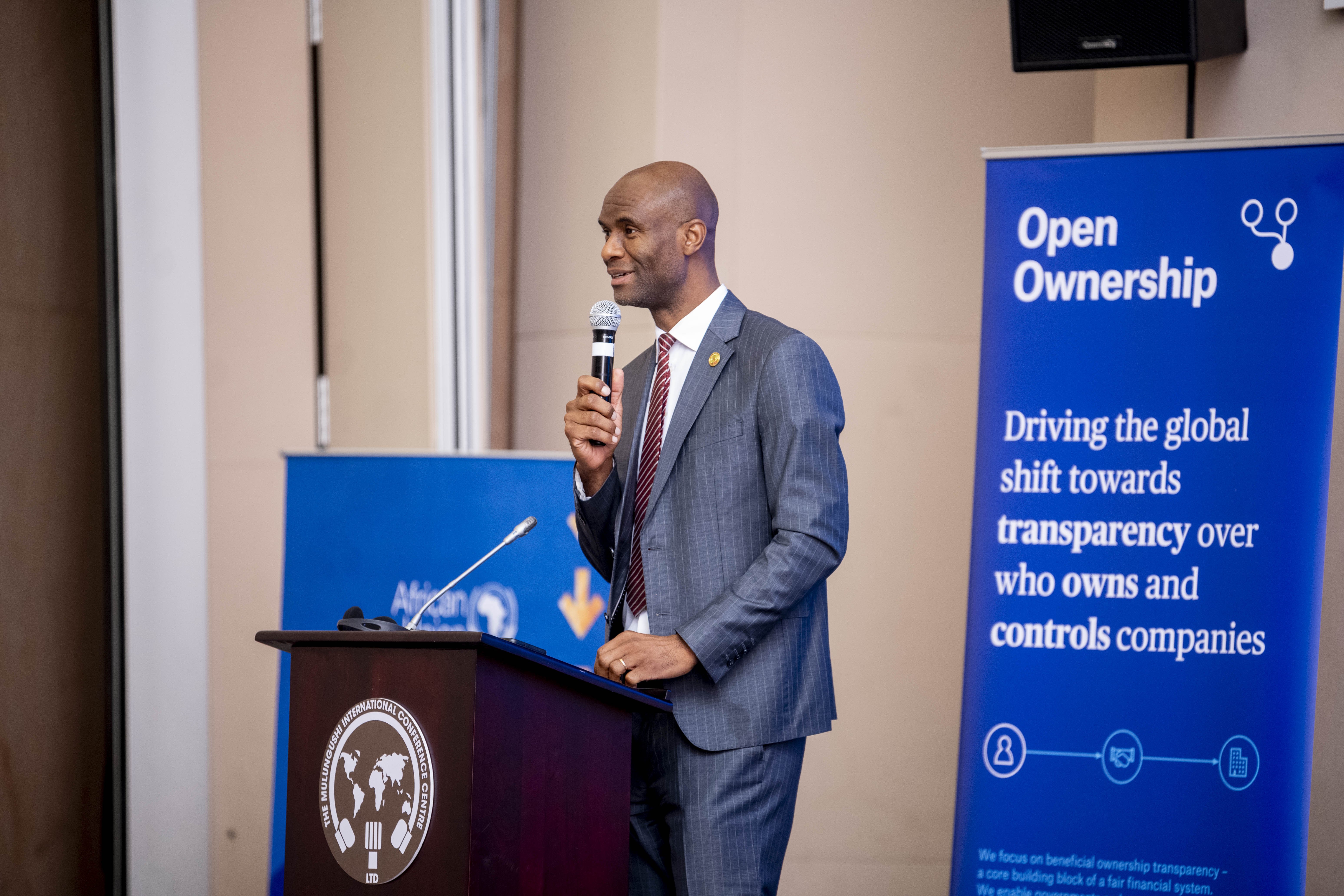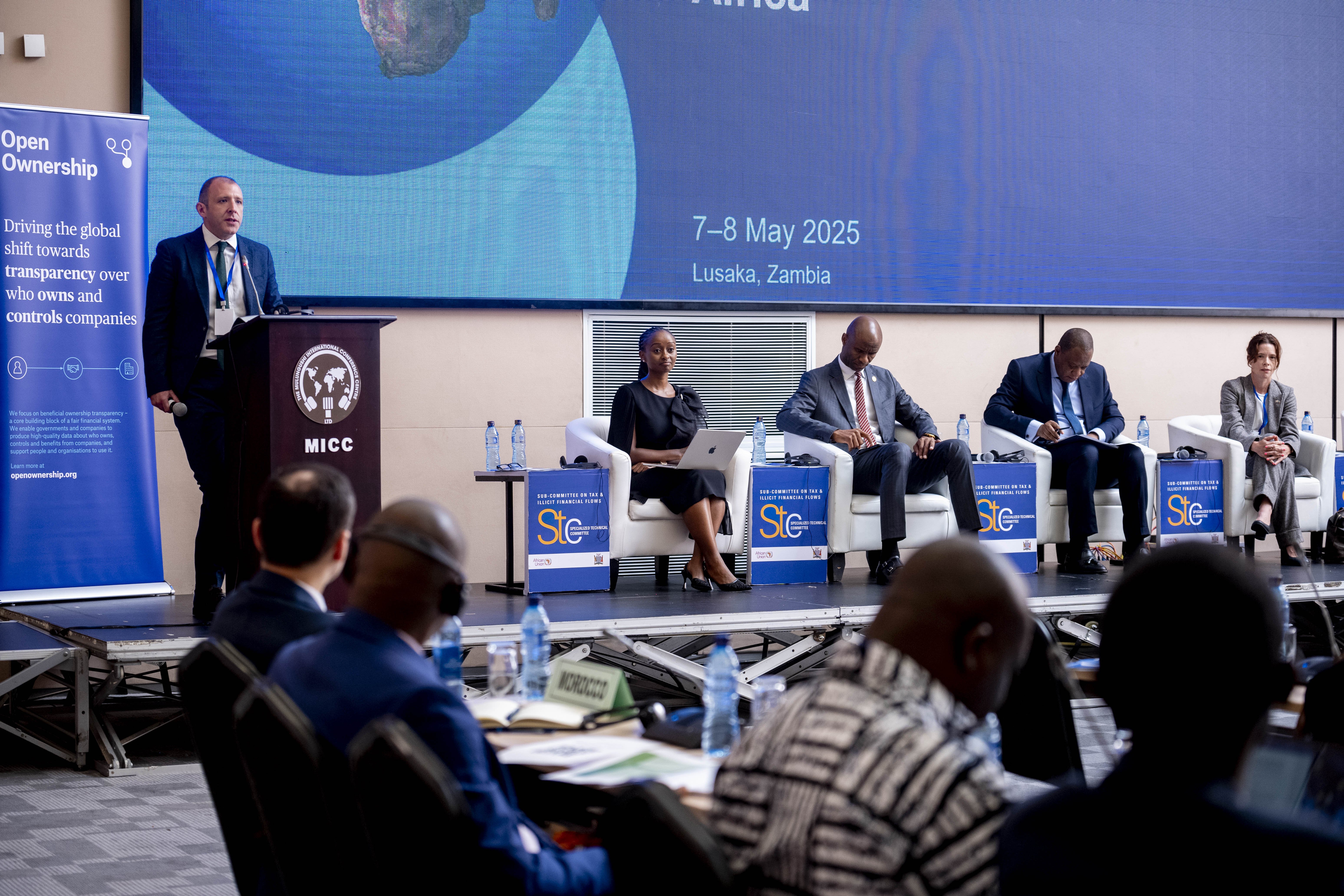A monumental step forward for regional beneficial ownership transparency reforms in Africa

Some 42 member states and 140 participants gathered for the beneficial ownership transparency seminar at the African Union 4th Sub-Committee Meeting on Tax and Illicit Financial Flows in Lusaka, Zambia
Reflections on the African Union STC beneficial ownership transparency seminar and the role of the Africa Beneficial Ownership Transparency Network
The recently concluded two-day beneficial ownership transparency (BOT) seminar at the week-long African Union (AU) 4th Sub-Committee Meeting on Tax and Illicit Financial Flows (IFFs) held in Lusaka, Zambia on 7-8 May, 2025, marked a monumental step forward on regional BOT reforms across the continent. The pan-African convening of 42 member states with approximately 140 participants was a show of commitment towards curbing spillage of Africa’s resources, currently estimated at USD 88.6 billion through illicit financial flows, equivalent to 3.7% of the continent’s GDP.
This groundbreaking event laid the foundation for critical discussions on regional data sharing and the implementation of BOT reforms, particularly for lower-income countries. The convening proposed actionable solutions for a future where African countries are able to drive up domestic resource mobilisation through greater transparency over who owns and controls companies and assets. Mary Baine, Executive Secretary at the African Tax Administration Forum, aptly stated: “You cannot fight what you don’t know.”
The role of the AfBOT Network in shaping the convening
A central role-player in shaping the dialogue on BOT during the seminar was the Africa Beneficial Ownership Transparency (AfBOT) Network, a member-led initiative convened by the African Development Bank and the United Kingdom government, with technical support from Open Ownership and the AU. This spirit of collaboration was not only evident in the facilitation but also deeply embedded in the structure of the seminar itself. The event served as a timely reminder that at the heart of beneficial ownership (BO) reforms lies the critical role of collaboration and partnership, and that regional and sub-regional platforms such as the Southern African Development Community, Economic Community of West African States, and East African Community remain essential vehicles for advancing these reforms in a coordinated and impactful way. A detailed summary of the sessions proceedings can be found here.
Underscoring this point, Dr Patrick Ndzana Olomo, Acting Director of Economic Development, Integration and Trade at the AU, noted that “AfBOTN serves as a promising platform for harnessing and sustaining the growing momentum across the continent. Accountability and transparency are central to Africa’s development agenda, creating an environment conducive to economic growth, and directly supporting both Agenda 2063 and Sustainable Development Goal 16”, particularly in the context of tackling illicit financial flows.

Dr Patrick Ndzana Olomo, Acting Director of Economic Development, Integration and Trade at the AU, speaking at the event
Momentum towards frameworks for regional beneficial ownership data sharing
This emphasis on regional coordination came to life during the regional data-sharing group exercise, the first of its kind at an AU STC meeting. It became abundantly clear that even within sub-regional groupings there is a pressing need for meaningful engagement, and that these platforms must make space for countries to listen to each other’s progress, exchange practices, and openly discuss the legal, institutional, technological, and political challenges they face at the national level, which may affect their ability to share BO information across borders.
The discussions made it clear that effective regional data sharing hinges on regular and sustained dialogue between countries. While the seminar underscored the value of broad-based policy conversations across a wider group of member states, it also highlighted that developing a continental framework for data sharing will require significant legal and technical harmonisation. In light of this, member states were encouraged to adopt a subregional approach, piloting data-sharing initiatives within smaller blocs as a practical step toward scalable, continent-wide solutions.
The policy discussions also revealed that inclusive stakeholder participation is vital in the regional conversations, particularly the involvement of the private sector, whose input can significantly enhance both the design and functionality of BO frameworks. Representatives of financial institutions attending the seminar underscored the importance of access to BO data, as it enables for robust verification processes and strengthens compliance efforts.
Concrete commitments and actionable next steps
By the end of the seminar, there was a strong sense of camaraderie and shared gratitude among participants for having contributed to shaping the continent’s future and making meaningful contributions to leveraging BOT reforms to tackle illicit financial flows. Open Ownership Executive Director Thom Townsend noted, “Africa has been at the forefront of reforms and innovative approaches… showing the way in which the reform needs to go.”

Thom Townsend, Open Ownership’s Executive Director, highlighted Africa’s prominent role in BOT reforms during the event
The seminar concluded with clear and actionable BO commitments across three main areas, establishing: high-quality BO registers, the use of BO data for meaningful impact, and regional data sharing. These represent a landmark achievement for BOT in Africa, charting the way for the next chapter of BOT reforms across the continent.
